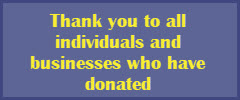Breaking The Silence on Domestic Violence
“When it comes to silencing women, Western culture has had thousands of years of practice,” wrote Mary Beard in Women & Power: A Manifesto. Campaigns to break the silence on domestic violence encourage survivors, mostly women, to disclose their experience of abuse and guide allies on how to create safe spaces to support them. Breaking the silence on domestic violence also requires us to challenge silencing.
Silencing survivors can take the form of negative reactions by people in positions of power to disclosures of abuse and even attempts to shut down awareness of the prevalence and impact of domestic violence in our communities. Silencing can be as simple as a rebuke that domestic violence is too somber a topic for the holiday season and as overt as blaming or doubting a survivor.
Silencing is about power and is an act of oppression. In a 2017 essay, Rebecca Solnit writes how silencing and powerlessness go hand in hand:
“A husband hits his wife to silence her. A date rapist or acquaintance rapist refuses to let the “no” of his victim mean what it should, that she alone has jurisdiction over her body. Rape culture asserts that women’s testimony is worthless, untrustworthy. Anti-abortion activists also seek to silence the self-determination of women. A murderer silences forever.”
Overcoming silencing needs empowerment. It requires the power to speak up. It means affirming and supporting those who experience violence where they are at. It requires critical self-reflection by service providers on their power and privilege to ensure that they are not part of the problem. We have to recognize that the vulnerability to and impact of silencing is compounded by multiple oppressions that women may experience.
At MAWS, we are pushing back against a patriarchal society that silences survivors by promoting gender equality and incorporating the principles of intersectional feminist practice in all that we do. We are working to support those who speak up.









